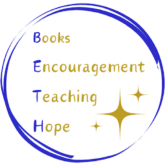 Title: I Lived on Butterfly Hill
Title: I Lived on Butterfly Hill
Author: Marjorie Agosín
Publisher: New York: Atheneum Books for Young Readers, 2014.
Genre: Historical fiction
Audience Age: 11 to 15 years
Themes, topics: Home, exile, Chile, refugees
Opening Sentences: The blue cloud finally opens—just when the bell rings to let the Juana Ross School out for the weekend. I’d been watching the sky from the classroom windows all day, wondering just when the rain would pour down.
Synopsis: Although at the point when the book opens, those opening sentences could be taken as an innocent description of the weather, they can also be seen as a portent of the political deluge to come, when a dictator overturns the government of Chile, and the changes flood over every aspect of Chilean life.
I Lived on Butterfly Hill tells the story of Celeste – eleven years old when the book begins. The reader experiences all that Celeste does, the language of the book causing the reader to feel her emotions, her fears, her bewilderment, as her known way of life crumbles away.
The book is set in the 1970s, and although fictionalized and compressed, it is the story of how Chile suffered under the dictatorship of Pinochet (names of political figures are changed in the book, but the basics of what happened remain recognizable).
Celeste doesn’t understand what is happening as classmates and their families begin disappearing, as other classmates turn against her because of her parents political leanings, and finally as her parents – who run a free clinic for the down-and-out – have to go into hiding.
Then it becomes necessary for Celeste herself to go away, for safety, to her aunt in Maine. When she arrives, she has to deal with being an outsider, and with the consequent teasing and misunderstandings that are part of being an outsider during early adolescence. Her first friends disappear – they move away without saying goodbye, for reasons we never know – which must make her feel as though the troubles in Chile have followed her to the United States. Gradually she makes other friends, and begins to put down roots, only to be told it is time to go back to Chile.
The regime is ended (far sooner than in real life), but will Celeste be able to make a life in Chile again? And what happened to her parents? Will they be part of her new life?
For Further Enrichment: There is an all-too-brief audio recording of the author explaining a bit of the backstory of the book, and reading from the first page, at Teaching Books.
There is a review and a brief written interview with the author at the Albany NY Times Union website.
Throughout the book, Celeste finds comfort and strength in the poetry of Chilean Pablo Neruda. A picture book for older kids, Pablo Neruda: Poet of the People by Monica Brown, illustrated by Julie Paschkis, gives his story, and is a good introduction to Neruda’s life and poetry.
In the 1970s, the word refugee was heard a great deal – on the news and elsewhere – as people fled Chile, and also Viet Nam. These days, the word refugee is also heard everywhere one goes. This book would be a good way to start a conversation with kids about refugees, and to give them an idea of what it would feel like to be a refugee.
There are some resources about this time in Chile’s history at the website Facing History, including a video that features Marjorie Agosín. It would be best for parents/teachers/librarians/caregivers to view the video before sharing and discussing it with kids. Here’s a direct link to the video.
Availability: This book is readily available. Check with your local independent bookstore, or order from a bookstore such as The Red Balloon in St. Paul MN.

This sounds great! 🙂
Thanks for this review. The book sounds terrific. I will check it out.
You know how much I enjoy historical fiction. I haven’t read any stories about Chile. Your review is thorough and excellent. Will check it out.
What a great rec. Thank you so much for the additional links. You gave a great review of this story. It sounds like it will make a great mentor text for something I’m writing. Thank you Beth.
A beautiful notion for a book. It could open the eyes of young adults to behavior, courage and a history that they would not ordinarily seek out.